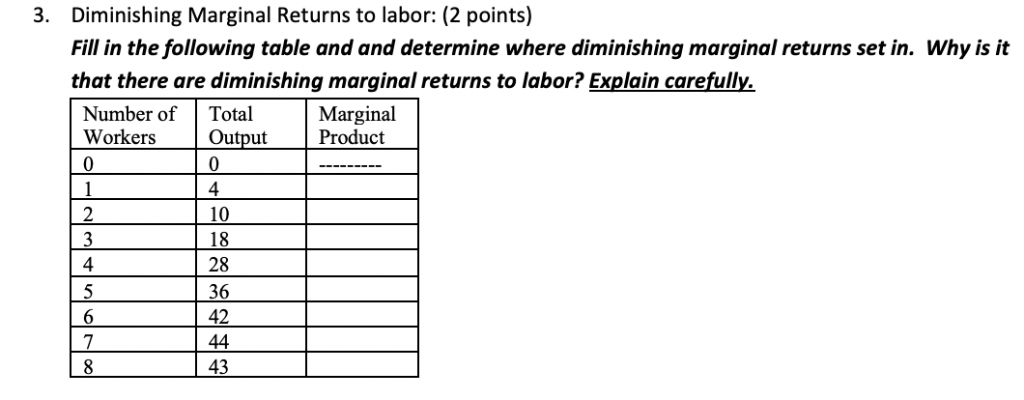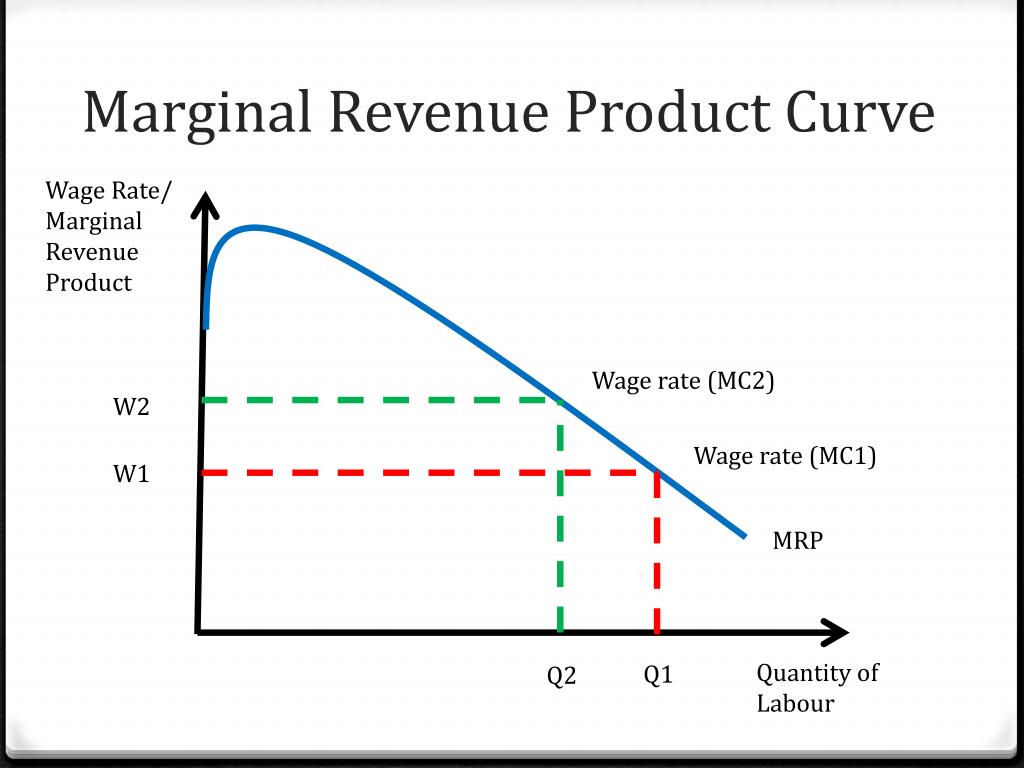

#Marginal product of the last worker manual
Thus, marginal product depends on the capital and technology with which workers have to work.Ī typist can type more pages per hour with an electric typewriter than a manual typewriter, and he or she can type even more pages per hour with a personal computer and word processing software. In this chapter, we assume that workers are homogeneous-they have the same background, experience and skills and they put in the same amount of effort. Since employers often hire labor by the hour, we’ll define marginal product as the additional output the firm produces by adding one more worker hour to the production process. Marginal product is the additional output a firm can produce by adding one more worker to the production process.

Recall the definition of marginal product. Then the worker is generating $8 per hour in revenues to the firm, and a profit-maximizing employer will pay the worker up to, but no more than, $8 per hour, because that is what the worker is worth to the firm. Suppose a worker can produce two widgets per hour and the firm can sell each widget for $4 each. We call this the first rule of labor markets. If a firm wants to maximize profits, it will never pay more (in terms of wages and benefits) for a worker than the value of his or her marginal productivity to the firm. How much is an employer willing to pay? That depends on the skills and experience you bring to the firm. Rather, it’s because your labor is worth something to the employer–your work brings in revenues to the firm.

Why do firms demand labor? Why is an employer willing to pay you for your labor? It’s not because the employer likes you or is socially conscious. The labor market, like all markets, has a demand and a supply. When economists talk about the labor market, they are describing these similarities. For example, when wages go up in one labor market, they tend to go up in others too. While each labor market is different, they all tend to operate in similar ways. scientist), skill level (entry level or more experienced), and location (the market for administrative assistants is probably more local or regional than the market for university presidents). Rather, there is a different market for every different type of labor. The labor market is the term that economists use for all the different markets for labor.


 0 kommentar(er)
0 kommentar(er)
